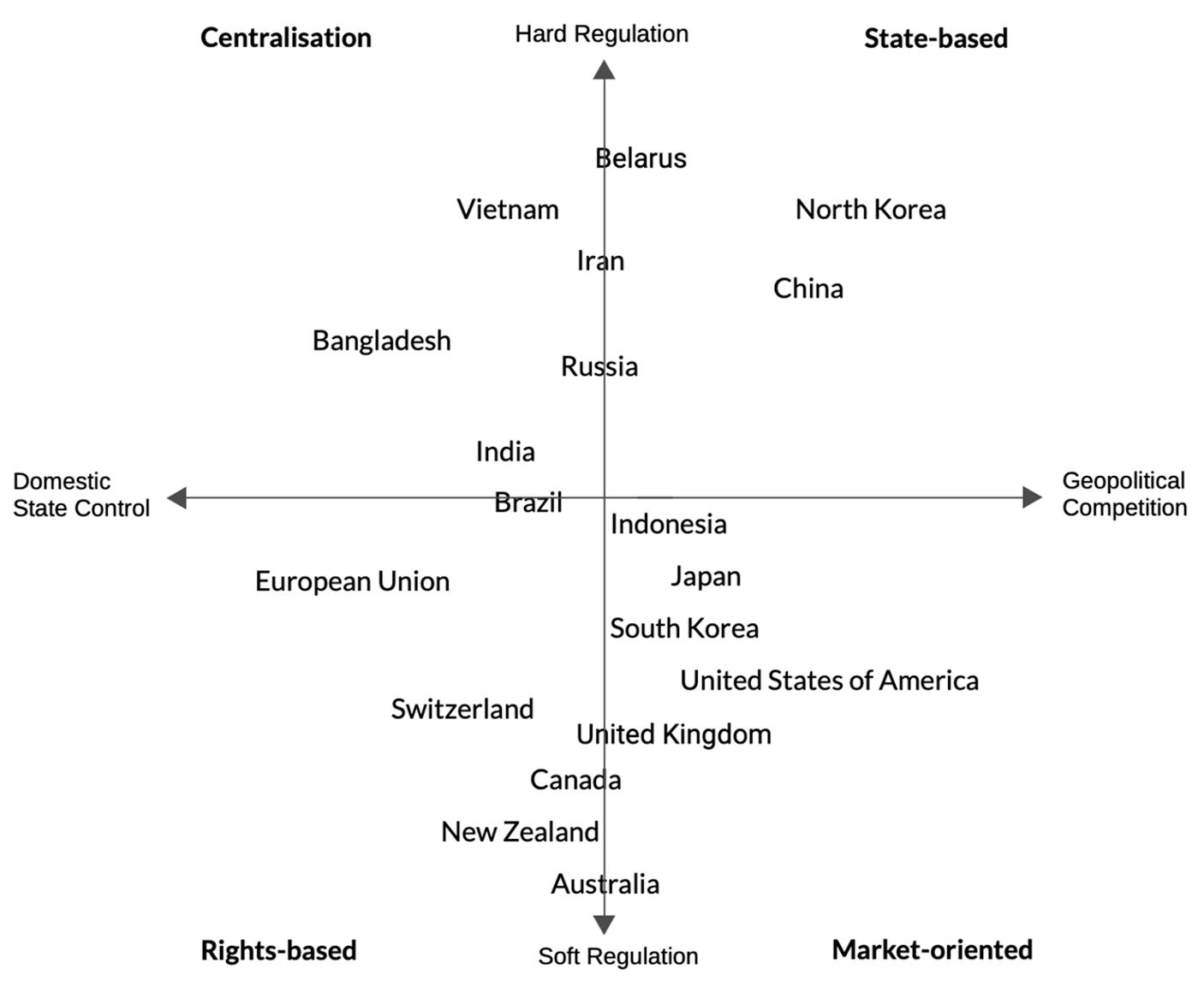Welcome back to the Ethical Reckoner. We’ve had two consecutive ERs, so it’s about time we caught up on the news. In this Weekly Reckoning, we cover how people are fleeing X (which may have tweaked its algorithm to promote conservative views) to Bluesky and ask if Bluesky can survive the influx. Then, a wrench is thrown into The Onion’s plan to buy Infowars. Finally, I try to convince you that you should care about digital sovereignty.
This edition of the WR is brought to you by… Friendsgivings and birthday baking
The Reckonnaisance
Bluesky takes off, but can it last?
Nutshell: A mass exodus from X is mostly going to Bluesky, but it’s unclear if the platform will be financially viable.
More: The platform is billed as a decentralized and/or federated alternative to X. It’s not really either (yet), but what most people care about is that it’s something like Twitter but not owned by Elon Musk. But right now, their only revenue stream is re-selling domains for usernames—they don’t charge for use, and they don’t have ads. How long they can last like this isn’t clear.
Why you should care: Well, for one, Bluesky is way better than it used to be. I was user 377,558 but I never felt that attached to the platform. Now it has nearly 20 million users, and it’s feeling much more vibrant. So if you’re looking for an alternative to X, come on over, the water is great. I will say that Bluesky is not the most intuitive to get set up with (The Verge has a good guide to Bluesky here), but “starter packs” of themed profiles you can follow in one fell swoop are really helpful. I’m here, and a starter pack of Yale Digital Ethics Center folks is here.
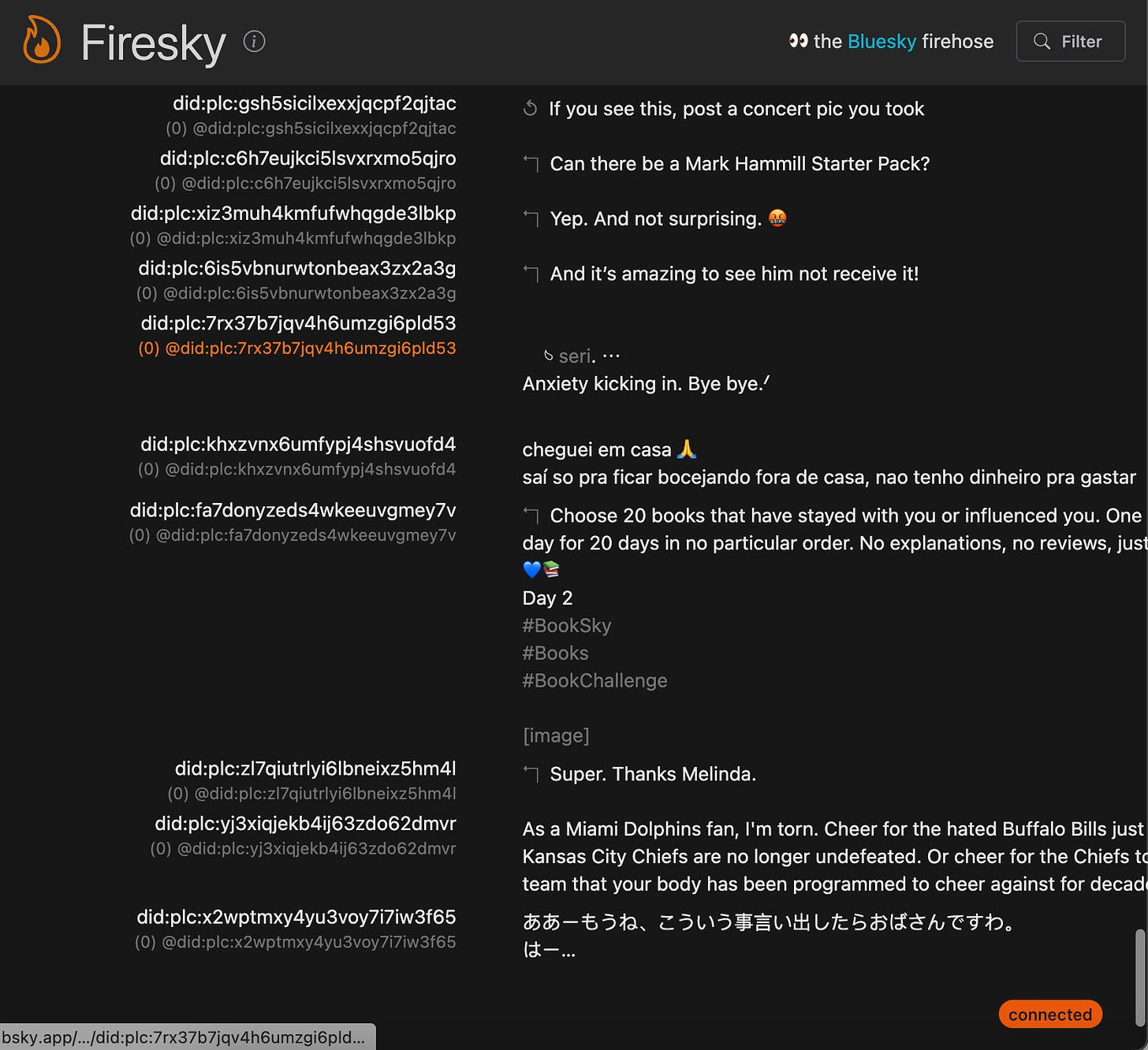
The Onion tries to buy Infowars
Nutshell: Parody site The Onion is trying to buy Alex Jones’s conspiracy site Infowars, but concerns about the bidding process may halt it.
More: Last week, it was widely reported that the The Onion is buying Infowars in a bankruptcy auction, but a judge has paused the process to review the auction. Jones is selling these assets to contribute to the $1.5 billion ruling against him for claiming that the Sandy Hook school shooting was a hoax. The Onion reportedly didn’t have the highest bid, but a group of Sandy Hook families agreed to take a lower portion of the ruling to strengthen the bid; the CEO of The Onion is confident they’ll get it in the end and plans to turn it into a “parody of itself” with advertisements only from Everytown for Gun Safety.
Why you should care: Alex Jones is a terrible person and Infowars has peddled conspiracy theories and sketchy supplements for far too long. Jones obviously is not taking it well, in part because the other bidder was apparently affiliated with one of Jones’s supplement companies, so it actually could keep Infowars under his control. This would be some poetic justice, but schadenfreude aside, this seems like an outcome the families actually want, which is ultimately the important thing.
Mr. Collins said the families of the victims were supportive of The Onion’s bid because it would put an end to Mr. Jones’s control over the site, which has been a fount of misinformation for years. He said they were also supportive of using humor as a tool for raising awareness about gun violence in America. (NY Times)
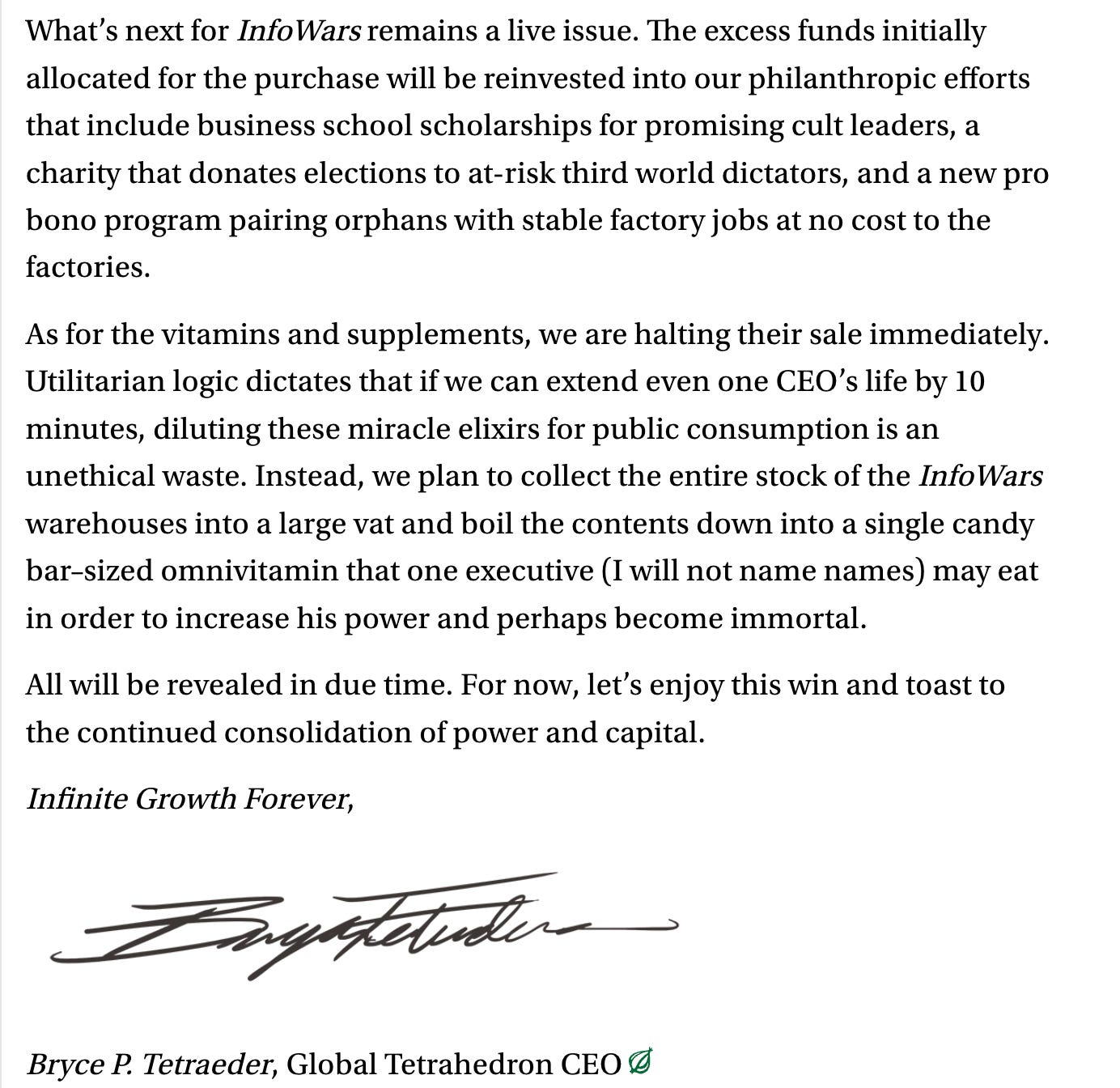
Conservative content got a boost on X
Nutshell: A study found that Musk endorsed Trump, Musk’s posts and conservative accounts got more engagement, suggesting “a possible recommendation bias.”
More: The study (hobbled by the elimination of X’s Academic API) looked at five prominent conservative and five liberal accounts, plus Musk’s own. Engagement metrics on Musk’s posts skyrocketed after July 13, with views more than doubling. Views of posts from the conservative group of accounts also increased, which the authors conclude maybe indicative of an an “algorithmic adjustment, potentially in the For You feed, designed to place certain content in front of more users, thus driving up views selectively for these accounts.”
Why you should care: We all knew that Musk was promoting his pro-Trump opinions on X, and many people suspected that there had been algorithm tweaks to boost them—including me when literally my entire “For You” feed was Musk’s tweets. (Remember when he got mad that his Super Bowl tweet didn’t do well, forced the engineering team to stay overnight, and in the morning everyone’s feeds was just his tweets?) But there’s a difference between suspicions and statistics, and also a difference between promoting his account and promoting conservative views more broadly. The solution? See our first story above.
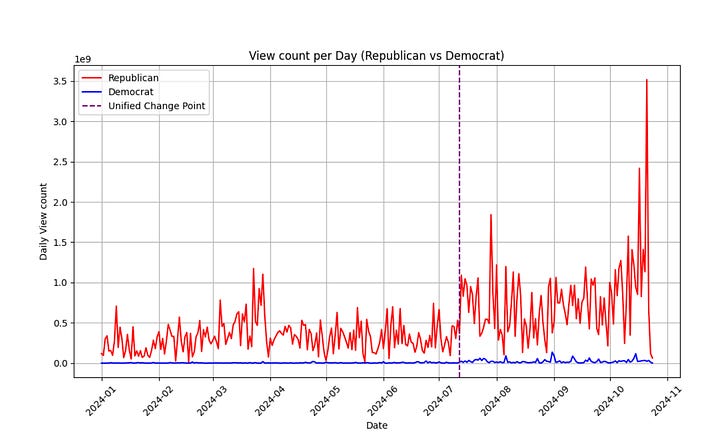
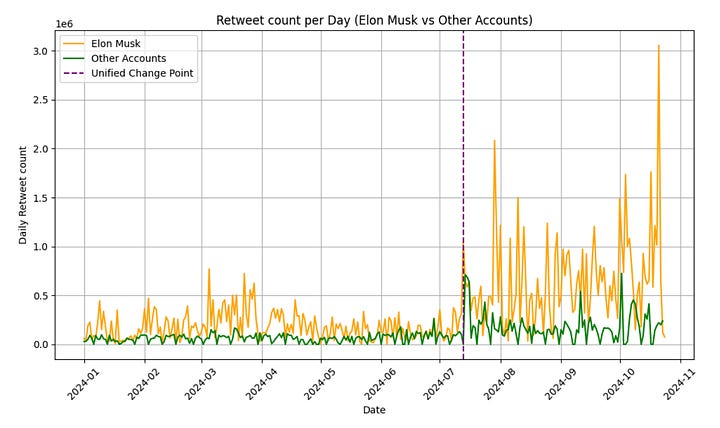
Extra Reckoning
Do the words “digital sovereignty” mean anything to you?
If so, congratulations! I’m about to explain a paper you’ll find interesting.
If not, congratulations! I’m about to explain a paper in a way that you’ll hopefully find interesting.

So. What is digital sovereignty? Basically, it’s how much control countries have over their digital spaces, companies, and technologies. It’s a new aspect of geopolitics in our ever-more-connected world, but it’s in some ways more complicated because cyberspace lacks country borders and heavily depends on private companies. Most of the time, researchers only look at the digital sovereignty strategies of major players, like the US, EU, and China, but there are other countries out there, and looking at their digital sovereignty strategies can help us get a better picture of the landscape, including who’s influencing who.
In this paper, we categorize almost 20 countries into four models: rights-based, market-oriented, centralized, and state-based. Here’s a graphic with our categorization:
Now, why does this nice graphic matter to you? Well, the way a country approaches digital sovereignty impacts things like your privacy online (rights-based countries are more likely to care about personal data privacy than market-oriented models) and which apps you can access (state-based and centralized models are more likely to try blocking apps they don’t like). Ultimately, digital sovereignty also affects how tech companies operate and innovate in different countries.
If digital sovereignty is a “defensive” measure, its counterpart is digital expansionism, where countries try to exert control over other countries’ digital elements—the US trying to ban China from 5G infrastructure and China’s own efforts to build influence in developing countries are prime examples. And these are starting to impact political relationships between countries.
So. Digital sovereignty is important because it ties into digital policies, which in turn impact both how you can use technology and global geopolitics. If you want to read the full paper and learn more about our categorizations, it’s available here.
I Reckon…
that security workers should really stop using Strava.
Thumbnail generated by DALL-E 3 via ChatGPT with the prompt “Please generate an abstract impressionist painting of blue skies.”




